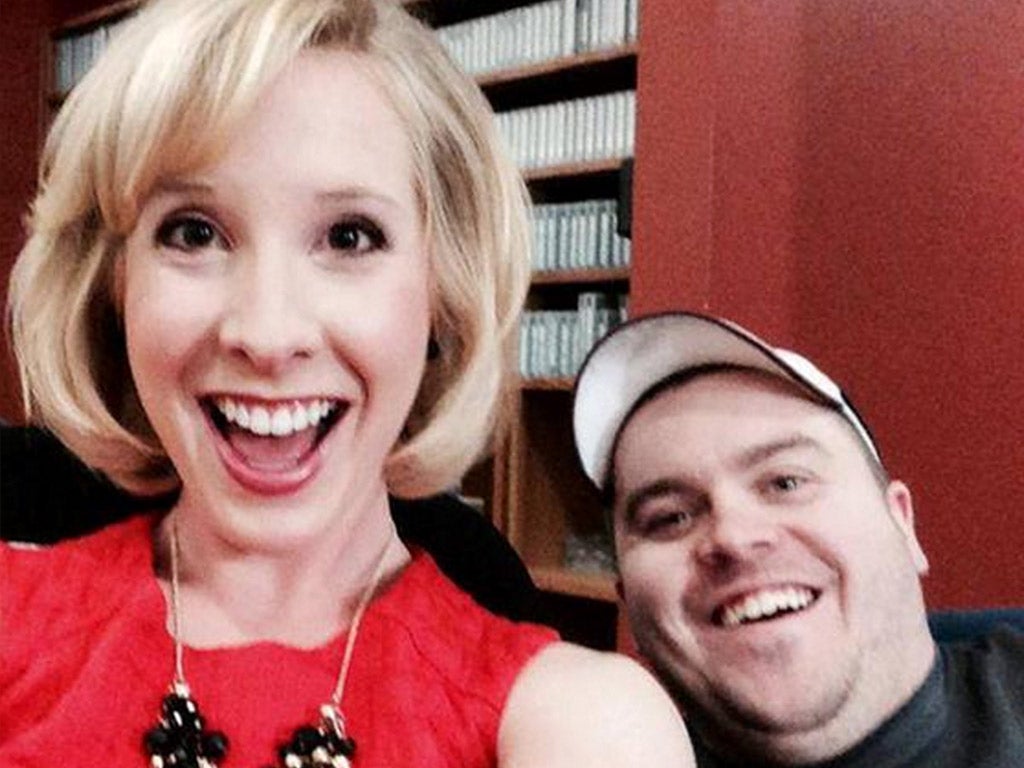Because of Facebook and Twitter I still have Alison Parker's final chilling moments looping in my head
No one should have to accidentally watch someone being murdered just so sites can make more money


Your support helps us to tell the story
From reproductive rights to climate change to Big Tech, The Independent is on the ground when the story is developing. Whether it's investigating the financials of Elon Musk's pro-Trump PAC or producing our latest documentary, 'The A Word', which shines a light on the American women fighting for reproductive rights, we know how important it is to parse out the facts from the messaging.
At such a critical moment in US history, we need reporters on the ground. Your donation allows us to keep sending journalists to speak to both sides of the story.
The Independent is trusted by Americans across the entire political spectrum. And unlike many other quality news outlets, we choose not to lock Americans out of our reporting and analysis with paywalls. We believe quality journalism should be available to everyone, paid for by those who can afford it.
Your support makes all the difference.Alison Parker and Andrew Ward were gunned down doing a routine piece for their local news station on Wednesday morning. The murder was carried out by former co-worker Vester Flanagan, whose convoluted motive appears to land somewhere between HR grievance and racial hatred. But I don’t need to tell you all of this – chances are, you’ve already seen it first-hand.
Immediately after killing his former colleagues, Flanagan boastfully uploaded a first-person video of the murders onto his social media accounts – and although both Facebook and Twitter acted swiftly to take the video offline, the damage had already been done. Tech-savvy web users worked fast to repost the images, and they quickly went viral.
I witnessed Parker and Ward’s murder before I even knew there’d been a shooting. I was just scrolling down a Facebook newsfeed dominated by selfies and pictures of food, and there it was. Facebook started playing the video without being prompted, and I was in shock. Was this real, or simply a hoax? I kept scrolling, and it didn’t take long before the site played me another video of the murders – this time from the point-of-view of cameraman Andrew Ward. Alison Parker’s final on-air scream is still playing on a constant loop in my head.
I appreciate that there are occasions when we need to be taken out of our comfort zones. Wednesday’s shooting exemplifies yet another glaring reason as to why the US must embrace some form of gun control, and address these deep-seeded racial tensions threatening to tear the nation apart. But watching these videos almost felt like appeasing, even glorifying, a cold-blooded killer. Instead of remembering the victims, we’re obsessing over the odd ramblings of a psychopath. I wish I was given a choice.
Admittedly, there's nothing these networks could possibly do to eradicate every single post that shows Flanagan gunning down his former colleagues. But there is something they could do to let users decide for themselves whether they want to watch it – and it’s frightfully simple. The problem is, that solution is bad for business.
Facebook and Twitter have already come under fire for the decision to stream videos without asking your permission. Both sites have apologised, but neither wants to budge. By forcing you to watch content, it enables the networks to dangle extraordinarily high viewer numbers in front of advertisers. Autoplay makes these companies a lot of money, and so they want it to stay in place.
Consequently, it’s not easy to turn off. After fiddling with it for a few minutes, I gave up and googled it. It takes a few steps, and varies from platform to platform. That's not right.
Facebook and Twitter are not public service companies. They’re in the media business to make money. But they’re also companies that over a billion people rely on as a means of communication. They’ve got to bear in mind the social impacts of their money-making strategies – and every so often, they should be placing user welfare over business.
Despite their actions to take the videos offline, by allowing us to still be fed videos of Wednesday’s murders, these sites weren’t simply boosting their ad revenues. They were also giving a cold-blooded killer the publicity he so desperately craved. That's not good business, and it's not good for public discourse. Something needs to change.
Join our commenting forum
Join thought-provoking conversations, follow other Independent readers and see their replies
Comments